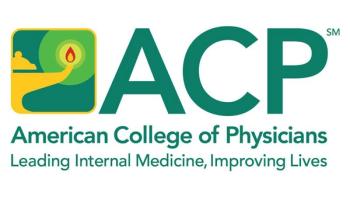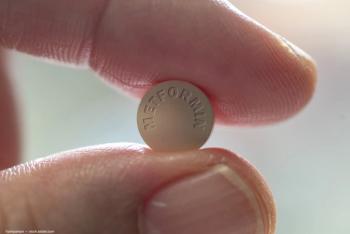
Adverum Biotechnologies presents gene therapy data and introduces an intravitreal gene therapy program for geographic atrophy
The company made these announcements at the American Society of Gene & Cell Therapy (ASGCT) 2023 Annual Meeting in Los Angeles, California.
Adverum Biotechnologies, Inc. presented new, nonclinical data on an IVT gene therapy for the treatment of GA secondary to dry age-related macular degeneration (dry AMD) via expression of CFI. The company also presented new research pipeline data supporting the utility of its proprietary adeno-associated virus (AAV) vector platform in ocular gene therapy. These advancements were announced at the American Society of Gene & Cell Therapy (ASGCT) 2023 Annual Meeting, in Los Angeles, California.
“The ability to deliver both CFI and an engineered melanopsin leveraging our proprietary capsids via IVT administration demonstrates the strength of our platform at Adverum,” commented Brigit Riley, Ph.D., chief scientific officer of Adverum Biotechnologies in the press release. “Similar to wet AMD, patients with GA are forced either to receive frequent, often monthly, injections or to experience faster lesion growth and vision deterioration. We’re in the early stages of development for a GA therapeutic and are excited by the potential for a paradigm shift for dry AMD patients worldwide with a single, in-office, IVT injection creating CFI biofactories in the retina.”
Geographic Atrophy Poster Highlights
- GA is a highly prevalent disease characterized by retinal pigment epithelium (RPE) and photoreceptor death. The inhibition of components of the complement pathway has been shown to meaningfully reduce GA lesion growth. CFI, a rate-limiting enzyme within the complement cascade, naturally blocks the activity of proteins involved in complement overactivation.
- Continuous expression of CFI in ocular tissue holds the possibility to inhibit complement overactivation, thereby halting GA lesion growth and preserving vision for dry AMD patients.
- 7m8 and LSV1 capsids packaged with AAV-CFIco, yielded robust intraocular human CFI levels in NHPs. IVT administration of AAV-CFIco via both proprietary capsids was well tolerated, with no anti-inflammatory steroids used at any timepoint in the nonclinical study.
- Administering an AAV-mediated therapy to express CFI in patients via IVT delivery, a routine in-office procedure, could be an ideal treatment profile for a widely adoptable treatment for GA.
Optogenetics Poster Highlights
In a poster presentation exploring an optogenetic approach to vision restoration, Adverum presented data on an engineered melanopsin that demonstrated improved kinetics, including speed and light sensitivity, and that may have utility as a therapeutic transgene for optogenetic vision restoration. Melanopsin through its unique ability to regenerate chromophore has the potential to be an effective light sensor candidate by generating pseudo-photoreceptors for optogenetic vision restoration.
Chemistry, Manufacturing and Controls (CMC) Poster Highlights
In a poster presentation examining CMC strategies for AAV gene therapies, Adverum presented data demonstrating that improved bacmid purity enables lower passage number and higher gene of interest stability, and that manufacturing process changes, such as adding Sf-RVN cells with optimal media (rather than Sf9 cells) or the use of low MOI for rAAV production, can consistently yield higher titer rAAV.
The ASGCT poster and oral presentations will be made available on the Publications page of the Adverum website.
Newsletter
Keep your retina practice on the forefront—subscribe for expert analysis and emerging trends in retinal disease management.




























